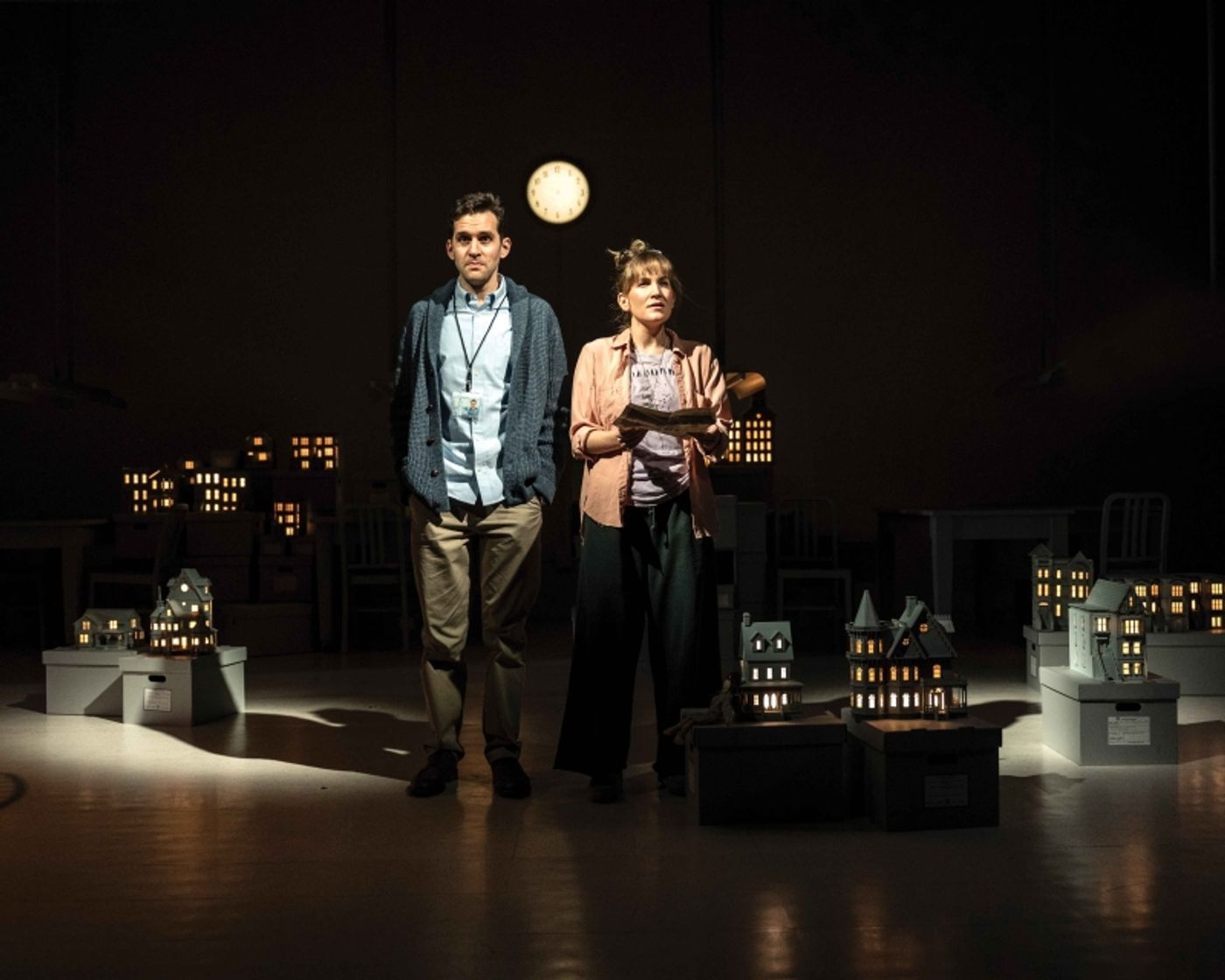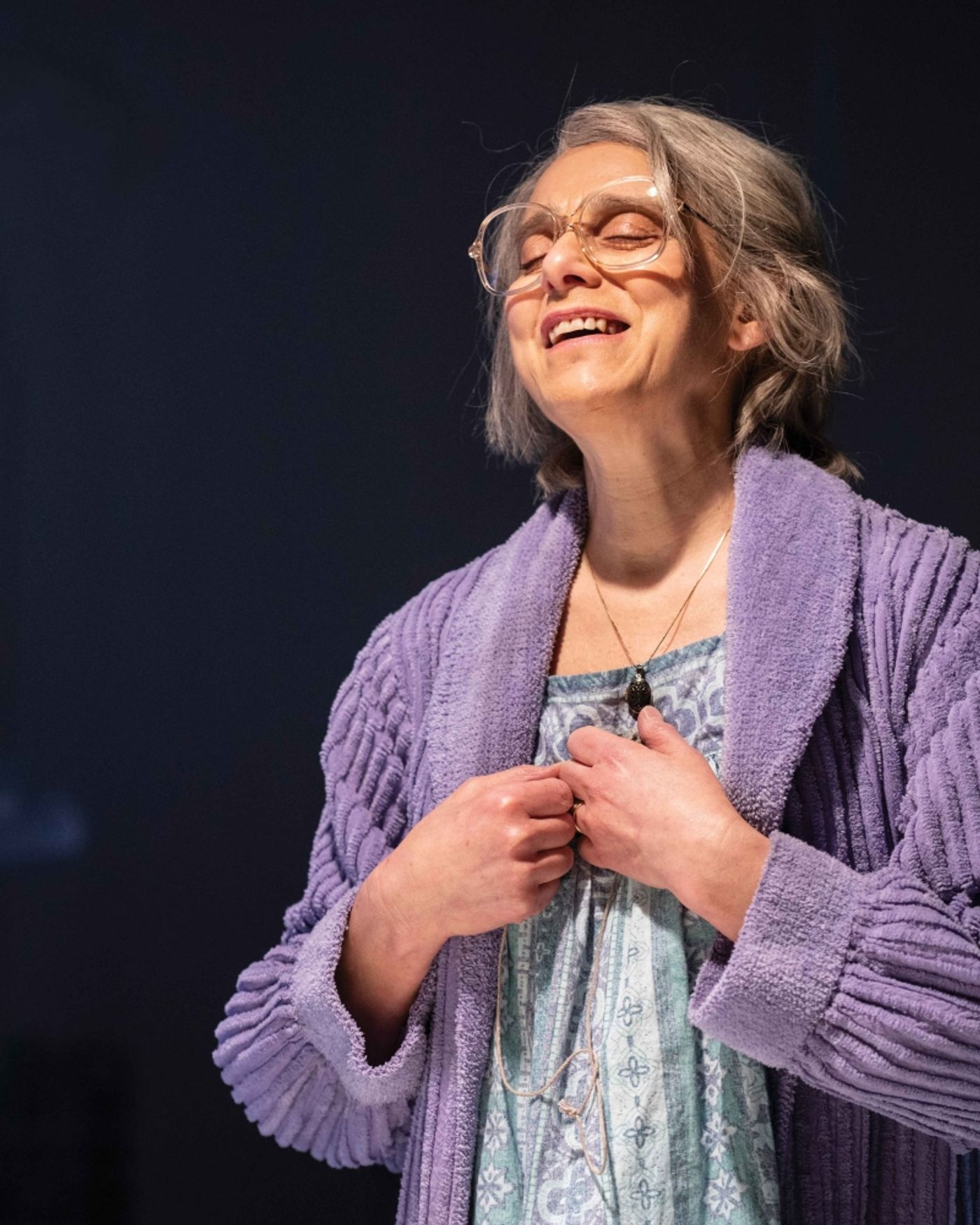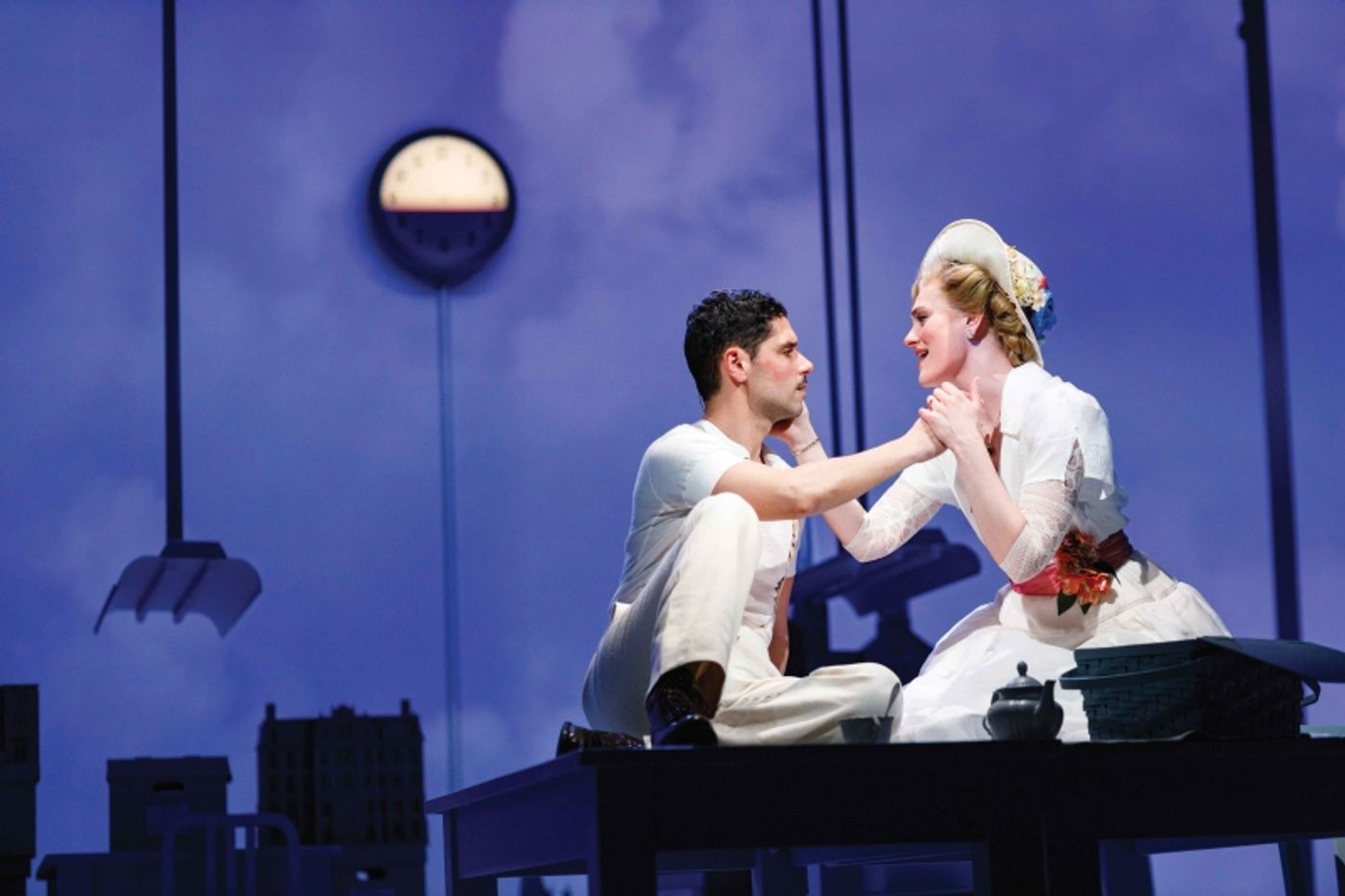Review: UNKNOWN SOLDIER at Arena Stage
Now on stage through May 5th.

What have you forgotten? What would you like to forget? What are you trying to remember? What don’t you know that you need to know?
- Otis Ramsey-Zöe, Dramaturg
Memory is a funny thing – it’s fluid and unreliable, sometimes crystalline sharp and other times hazy and inconsistent. We often joke about remembering random trivia but forgetting what we had for breakfast that very day, but it’s so much more complex with that. What we remember, and how we remember it, often changes not only with time, but as our sense of self changes as well. This is equally true for collective memory, for the stories we tell not just about ourselves, but about our histories, our families, and our world. As we evolve and change, so do our understandings, and, over time, things are forgotten, lost, or reframed.
Unknown Soldier, which is now playing at Arena Stage, seeks to explore our understanding of memory and our stories on these levels – individual, familial, and historical. Centered around one woman’s journey to understand her own family’s stories, Unknown Soldier explores how the past and present inform each other, and what it means to remember and forget.
Set primarily in 2003, Unknown Soldier focuses on Ellen, a woman in her 40s who has returned to her childhood home after her grandmother’s passing. While going through her grandmother’s things, she comes across a 1920 magazine article featuring her grandmother with an unfamiliar man referred to only as the “unknown soldier.” Looking to find more information about this mysterious part of her grandmother’s youth, Ellen reaches out to Andrew Hoffman, a researcher at Cornell University’s archive, and the two delve into the mysteries of Ellen’s grandmother’s past and this man who captured national attention for symbolizing so many who were forgotten in the aftermath of World War I.

Unknown Soldier, written by Daniel Goldstein and the late Michael Friedman, briefly premiered in March 2020 at Playwrights Horizon. The musical explores Ellen’s tumultuous relationship with her grandmother, Lucy, who raised her after her own mother passed during childbirth, and her journey to understand her own identity, but also grapples with the broader questions of the histories told about the War. The generational grief shared in Lucy and Ellen’s lives is palpable, but also reflective of the broader impact of the conflict – so many lives were inextricably altered by it, and while some progress came from it (including, as noted in the show, early understandings of PTSD and amnesia), so much has also been lost to the annals of history and memory. What we do know feels almost as unstable as what we don’t, informed by the impact of a century of events, generational change, and time itself.
As Ellen and Andrew sort through historical records and exchange theories on Lucy’s life, flashbacks to Lucy’s past help fill in the blanks – and raise far more questions. Ellen’s younger self also frequently appears – sometimes in flashbacks to Ellen’s childhood with Lucy, reflecting on how new information on Lucy’s past reframes their difficult moments, and sometimes as a subconscious voice, questioning Ellen’s own choices and path forward. Goldstein and Friedman perfectly capture the uncertain certainty of collective and personal memories, daring the audience to figure out the “right” answers to what happened to two people who can no longer tell anyone and frequently reminding them that records and family lore can only tell so much and can be reinterpreted many ways. But, while the facts may be uncertain, the emotional core can shine through and be understood, even if the source of those emotions is murky. Though the roots of them may be unclear, Lucy’s love and loss, and the grief she feels for losing the life she longed for, are all real and visceral, and those emotions are what drive her strained relationship with Ellen, regardless of how they came to be. Likewise, Ellen’s complicated feelings about her grandmother are equally real, even if she doesn’t understand their foundation; her desire to know more about Lucy even as she laments being trapped once again in the home she hoped to leave behind, and the lasting trauma she carries from both her own unstable childhood and from Lucy’s grief are clear driving forces for all of her own decisions. The show beautifully captures the transcendence of these emotions from facts, reminding the audience that, sometimes, there’s more truth in feelings.
While the production makes some insightful points about memory, grief, and love, it occasionally feels like it’s trying too hard to be profound without actually making a point – a key example of this is the refrain Lucy sings while mourning the loss of her love: “I’ll wait for you as long as it takes.” Paired with a lackluster score, this emotional core of the character and show sounds so pedantic that not even the great Judy Kuhn can make it feel particularly poignant. It’s hard not to also feel that it gets away from itself on occasion – the core story sometimes is lost to tangents, which can be natural to studying history but tonally feels distracting in the context of a single production, almost like parts of a report that should have been edited out during a readthrough. The result is that there are moments where the audience is pulled out of the story, which is frustrating, though the show does impressively manage to pull the audience back in again periodically. However, this is especially true for some of the musical numbers, notably “Andrew’s Story” and “The Memory Song” – while both well-performed, they felt out of place in the overall structure and emotional journey, and frustratingly short of their own professed purposes. Andrew’s song claims to show a pattern, but seems to forget its point midway through, and “The Memory Song” is far too sarcastic and humorous for the rest of the production, almost feeling plucked out of another show entirely. Frustratingly, the songs were also disappointing in and of themselves; despite being performed beautifully, the musical numbers were entirely forgettable. Another example of the inconsistent quality of the writing came in the localized references throughout the show. As a New Yorker who spent time upstate, I found most of the jabs at Troy and Ithaca (and the decision to focus on these two particular cities, given their historical references) to be entertaining in-jokes, though a few felt in really poor taste (trigger warning for suicidal ideation: Andrew references wanting to throw himself off the bridge when talking about how great everyone else finds Ithaca; just a couple years later, Ithaca had to install netting in response to the dramatic increase in suicide attempts from students at Cornell and Ithaca College).

Whatever flaws the book and music have, however, are very nearly forgiven thanks to the incredible talent on stage. The incomparable Judy Kuhn is a joy to watch, and it’s only disappointing that her character has limited stage time; especially as the mysteries of Lucy’s life unravel, watching Kuhn translate the new pieces to how they impacted her adulthood is insightful and fascinating. As Andrew, Adam Chanler-Berat has a likable charm that makes him a fantastic narrator, but also packs a punch as more about his character is revealed since he manages to lean into and defy the audience’s expectations. Riglee Ruth Bryson is delightful as Young Ellen, and perfectly balances her character’s bombastic and subtler presences throughout the performance. As the younger version of Lucy, Kerstin Anderson initially captures attention for her gorgeous soprano, but it’s her understated movements and facial expressions that truly elevate the complicated character at the center of the story. Anderson pairs beautifully with Perry Sherman’s Francis Grand, the titular soldier, who likewise has a captivating voice and a subtlety to his acting that really shows the audience his character’s inner turmoil. Nehal Joshi perfectly captures the genuine insanity of a 1920s psychiatrist, with a careful and believable edge that is underscored by his work alongside the excellent ensemble, led by Dance Captain Wood Van Meter. But it’s Lora Lee Gayer, as Ellen, who really carries the show – the audience immediately empathizes with her, and her layered performance is the clear beating heart of the production.
Individually, each cast member is immensely talented, but it’s also their cohesion that really elevates Unknown Soldier to such an engaging production. As mentioned, Anderson and Sherman’s duet is one of the show’s high points, as are the fun exchanges between Gayer and Chanler-Berat as their conversations shift from emails to instant messenger to calls. The different versions of Lucy and Ellen are also fascinating to watch; the actresses manage to capture the same movements and mannerisms so perfectly and in such a natural way that it’s astonishing to watch. When the four actresses (Kuhn, Anderson, Bryson, and Gayer) sing “Penelope” together, the harmony among them, both musically and in movement, is simply magical.

Supporting the onstage talent is also a solid production team. Trip Cullman’s direction guides the cast through the play gorgeously, supported by Patrick McCollum’s strong choreography. Mark Wendland’s set design is deceptively simple and minimalistic, but full of beautiful details, including the intricate houses with their coordinated lights, courtesy of Ben Stanton’s excellent lighting design, and the simplicity allows for Lucy Mackinnon’s stunning projections to really shine. Leon Rothenberg’s sound design is solid, supporting the noteworthy duets and vocal blending the talented cast provides. And, as would be the focus of a period piece, Jacob A. Climer’s costumes are exquisite, and work perfectly with J. Jared Janas’ spot-on hair, wigs, and makeup.
Unknown Soldier is a beautifully performed show with some lovely moments and a thought-provoking premise. It’s a fascinating exploration of memory, love, and loss, but its main flaw is that it is a show seeking out answers to a mystery it not only fails to resolve, but further convolutes at every turn. While there’s truth in that, it’s also a little dissatisfying, as life itself often is.
“That’s not what happened,” Andrew tells Ellen when she tells him what version of Lucy’s story she’s decided to accept.
“I know,” she replies with a resplendent smile. “Isn’t it better?”
Honestly, I’m not sure if it is. But I’d consider watching it again, just to see if they can persuade me.
Unknown Soldier plays at Arena Stage through May 5th. Performance run time is approximately 1 hour and 40 minutes with no intermission. Information on special performances, post-show discussions, and tickets can be found on the Arena Stage website. Please note trigger warnings for discussions of grief, loss, mental illness, pregnancy complications, suicidal ideation, and war.
Banner Photo Credit: Kerstin Anderson, Lora Lee Gayer, and Perry Sherman for Unknown Soldier. Photo by Tony Powell.
Reader Reviews
Videos

